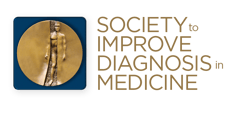Improving Diagnostic Error for Cancer Survivors and Cardiovascular Risk (IDEAS)
Project Lead: Ankita Sagar, MD, MPH, FACP
Project AIM(s): Improve diagnostic accuracy and timely detection of cardiovascular disease among cancer survivors previously exposed to therapies with long-term cardiovascular effects (chemotherapy, radiation, or immunotherapy).
Aim 1 – To increase the percentage of cancer survivors with history of exposure to radiation to the heart >30 Gy, who receive appropriate screening for cardiomyopathy via echocardiography within 12 months after treatment completion by 20 percent over 12 months. The pilot location for the project was changed from Long Island Jewish Medical Center (LIJ) to Monter Cancer Center’s Radiology Oncology department after further discovery into the target population.
Aim 2 – To increase the clinical knowledge of clinicians (radiation oncologists, primary care physicians, and cardiologists) regarding cardiovascular risk for patients who are cancer survivors, with history of exposure to radiation to the heart >30 Gy, by 20 percent over 12 months.
Narrative Description
We focused on improving diagnostic accuracy and timely detection of cardiovascular disease among cancer survivors previously exposed to therapies with long-term cardiovascular effects (chemotherapy, radiation, or immunotherapy) to tackle this issue involving a multidimensional approach, by creating and implementing CDS Cancer Survivorship Note for Radiation Oncology along with incorporating both provider and patient education.
Challenges around these two approaches include patient education because many have been unsure about cardiology referral and screening because they were not fully aware of the implications of radiation therapy on cardiovascular disease, along with the additional increased clinician time requirement for inputting data for appropriate clinical guidance. Health information technology has been implemented across health systems with an expectation to help manage and deliver the ever-expanding body of clinical knowledge into clinical workflows. Clinical decision support (CDS) has been the practical mechanism to achieve this, delivering the right information at the right time. Our CDS tool delivers patient-specific recommendations for appropriate cardiac screening based on guidelines to the clinician during cancer survivorship discussions with the patient. This facilitates enhanced health outcomes, avoids adverse events, and increases the quality of care and provider and patient satisfaction. Despite this, there are still opportunities for improvement.
Regarding patient education, addressing concerns about long-term side effects is probably best done soon after the treatment, when the concern and awareness are current. Once the treatment is completed and the acute side effects resolve, the patient and physician can focus on addressing the potential long-term side effects and consider interventions for prevention and detection. These considerations are part of the survivorship process, which aims to return the patient to normal/pre-treatment or even better function.
Even with these barriers, the learning takeaways from the IDEAS pilot has been shared with the clinical leadership at our Cancer Institute as well as Northwell Health Medical Directors Committee. These learning takeaways will be part of the planning and implementation process as Northwell Health launches specialized programming targeting better patient and clinician experience related to cancer survivorship.
Diagnostic quality problem type, failure, or category (symptoms, observed problems, gaps in performance) addressed by the intervention
- Failure to access the health care system or engage in the diagnostic process
- Failure in information gathering
Root causes/causative factors addressed by the intervention
- Health information sharing and accessibility via health IT
- Diagnostic patient safety culture
Setting of the diagnostic quality improvement intervention
- Ambulatory medical care setting (e.g., clinic, office, urgent care)
